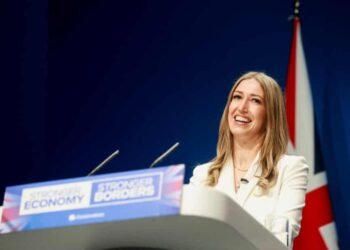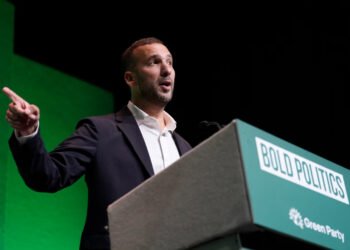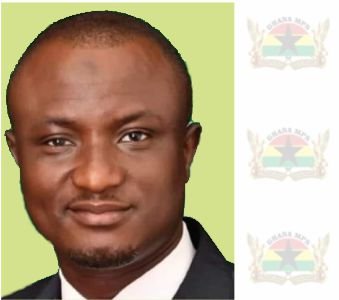British Prime Minister, Boris Johnson, has dismissed calls for a second referendum on Scottish independence,;saying most people in the United Kingdom feel now is “not the time” for such a vote as the country navigates;its way out of the coronavirus pandemic.
His comments come on the eve of Scotland’s parliamentary elections set for 6th May. Scottish First Minister, Nicola Sturgeon’s pro-independence Scottish National Party (SNP) is expected;to win the most seats in the 129-member house. She is, however, pressing for an outright majority to enable her push for a second independence referendum in a decade.
In an address to reporters, Johnson said another Scottish independence vote would be “reckless”.
“I think that most people in Scotland, most people around the whole of the UK, feel that … as we’re coming forwards out of a pandemic together, this is not the time to have a reckless,;and I think irresponsible, second referendum”
“I think what most people want is to focus on the country and taking it forward and rebuilding;our economy and getting people into work. That seems to me to be the priority”.
Scots voted against independence in a referendum held in 2014. Johnson referred to that vote as he also stated;that there had been a ballot on the issue “only a few years ago”.
Only UK court can prevent independence referendum
Sturgeon has indicated in a campaign that if the SNP wins a majority in the Scottish Parliament, when the COVID-19 pandemic is over, she will pass legislation to hold a new referendum by the end of 2023
However, the UK government has argued that the Scotland requires its permission to hold a legally binding second referendum. Johnson’s administration has also insisted it will not grant the section 30 order required for the Scottish parliament to legally hold another independence poll.
As a result, Sturgeon has challenged Johnson to oppose her plan in court, saying that only the UK’s legal system could prevent a second independence vote.
“I’m saying if Boris Johnson wants to stop it, he would have to take legal action. If Boris Johnson didn’t do that, by definition it would be a legal referendum. If he did do that, the courts would decide.”

In 2011, the SNP won an outright majority for the first time in its history and pressured then-British Prime Minister, David Cameron into agreeing to the 2014 referendum.
Scotland, however, voted to remain a part of the UK by a margin of 55%-45%. Opinion polls have so far been unclear as to whether Sturgeon will win the overall majority she needs in the Scottish Parliament to push for another referendum.
But the polls have suggested a majority of Scots may now favour independence. This shift, pollsters say, is driven by the UK’s departure from the European Union and concerns over Johnson’s government’s handling of the coronavirus pandemic.
Sturgeon has urged Scots to re-elect her as First Minister and let her “get on with the job of leading us out of the pandemic and into a brighter future”.
Read Also: Send Ghana urges government to pay LEAP arrears to beneficiaries





















